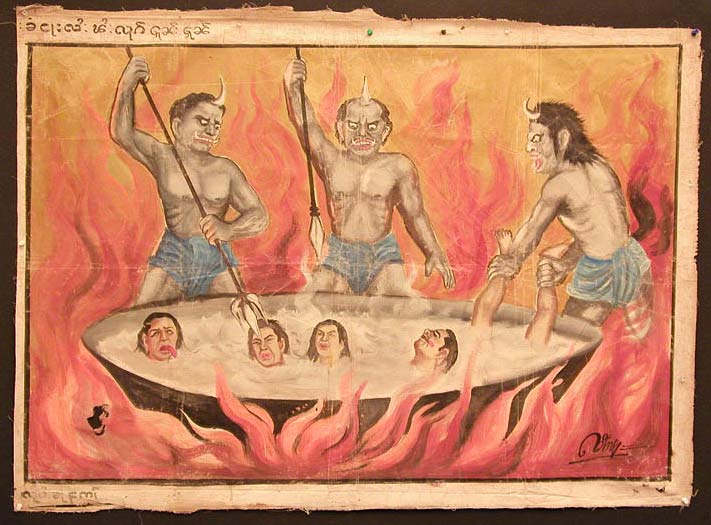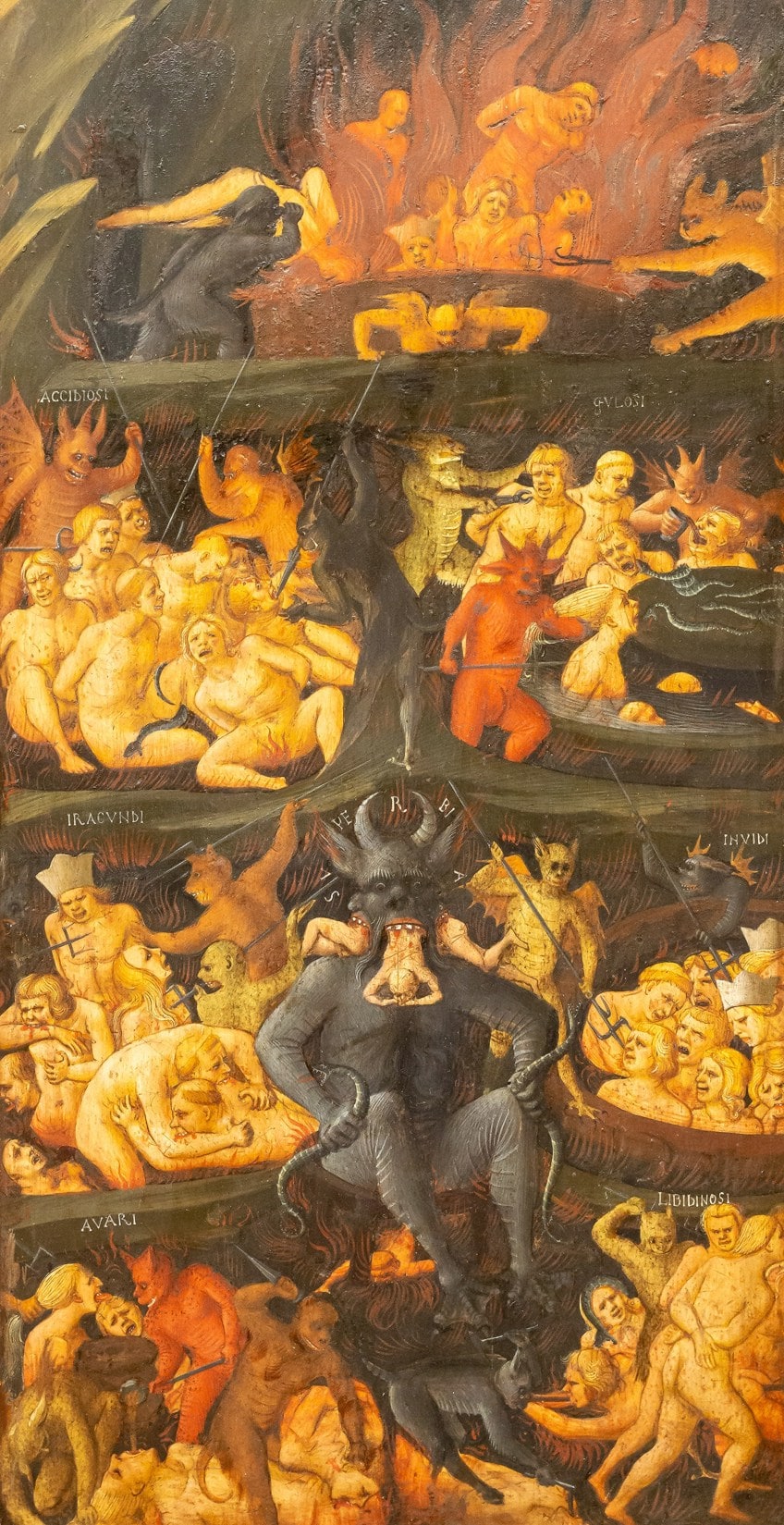 |
| A Buddhist image of hell. |
“Abraham replied, 'They have Moses and the prophets; they should listen to them.' He said, 'No, father Abraham; but if someone goes to them from the dead, they will repent.' He said to him, 'If they do not listen to Moses and the prophets, neither will they be convinced even if someone rises from the dead.'"
My father once said the most shocking thing.
“I believe the Jews really are the chosen people. That’s why we have to keep them down. Otherwise they’d control everything.”
Leaving out any other details of my father’s life and deeds, this seems to sum up something essential and unambiguous.
The comment, made in all sincerity, is shocking, of course, for its antisemitism. And antisemitism, history, especially modern history, has shown us, is the most sinister and least forgivable form of racism. Anti-black or anti-Indian discrimination can often look like benevolence. People can convince themselves they are doing it in good heart. Not so antisemitism.
 |
| A Muslim image of hell. |
Of course, my father was also prejudiced against blacks and Indians, and other groups.
It is also an obvious expression of envy. It tracks closely the sin of Cain. Cain killed Abel because he thought Abel was favoured by God. After pride, envy is the worst of the deadly sins.
But there is something even more disturbing here. My father was saying
- He believed in God.
- He was God’s enemy.
So he did not have the alibi of ignorance. He knew he was going against God, and fully intended to do so.
Years later, my father has now died, without any sign of repentance, on this or as far as I can remember over any other of his acts or views. His will seemed spiteful. Always a heavy drinker, he encouraged everyone to get drunk at his funeral.
We can never be sure, but this looks like the perfect example of a soul bound for eternal torment.
“God predestines no one to go to hell; for this, a willful turning away from God is necessary, and persistence in it until the end.”
And God did seem to be merciful. He gave my father ample time, close to ninety years, to sort things out. He never did.
 |
| An early Renaissance Christian view of hell. |
Why would anyone choose to go to hell? Milton gives the reason, in the words of Satan in Paradise Lost:
"Better to reign in Hell than serve in Heaven”
It is pride, the first and worst of vices.












No comments:
Post a Comment